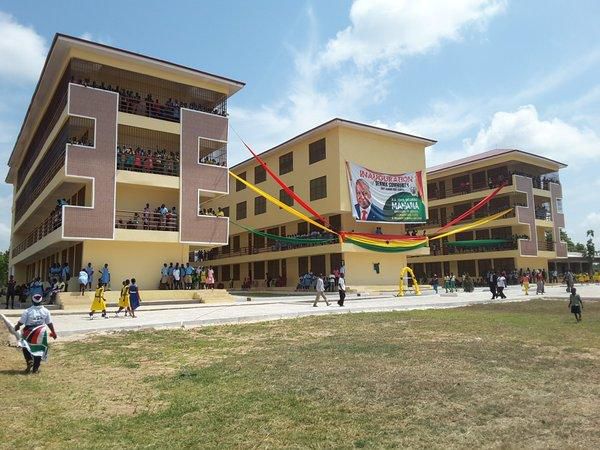What You Must Know Before Venturing into Real Estate in Ghana
)
Real estate is one of the most lucrative investment avenues in Ghana, especially in fast-growing urban centres like Accra, Kumasi, and Takoradi. However, success in this industry requires careful planning, market knowledge, and a clear understanding of the country’s legal and financial systems.
This guide highlights the key factors every Ghanaian investor must consider before venturing into real estate.
Capital Requirements

Before entering the real estate market in Ghana, you must assess your financial capacity. Unlike some countries where mortgages are common, Ghana’s real estate sector is largely cash-driven. Many property developers require buyers to make upfront payments, though flexible instalment plans are increasingly available.
Down Payments: For mortgage-backed purchases, banks such as Stanbic, Ecobank, or Republic Bank usually require a minimum of 20–30% down payment.
Closing Costs: Factor in stamp duty and registration fees (usually 1–3% of the property value), legal fees for documentation, and land agency processing costs.
Renovation & Utilities: Many homes, especially self-acquired land projects, may need additional funds for water, electricity connections, or finishing.
Being financially prepared prevents stalled projects — a common issue in Ghana’s property market.
Financing Options in Ghana
)
Financing remains one of the biggest challenges for Ghanaian investors, but there are several routes available:
Mortgage Financing: Ghana Home Loans (now First National Bank Ghana) and other commercial banks offer mortgages, though interest rates are often high (typically 18–25% annually).
Developer Payment Plans: Real estate firms like Devtraco, Lakeside Estates, and Regimanuel Grey often provide instalment packages spread across months or years.
Self-Financing: Many Ghanaians build gradually (“self-contained” style), financing construction step-by-step from personal savings.
Private Investors/Partnerships: Pooling resources with family or business partners is a growing trend in real estate ventures.
Your creditworthiness and banking history will strongly affect your mortgage eligibility in Ghana.
Cash Flow Analysis
)
If you are investing in rental property, understanding cash flow is crucial. In Ghana, rental income is typically paid 1–2 years in advance, giving landlords upfront cash. However, you must still consider expenses such as:
Property maintenance and repairs.
Agency fees (usually 10% of annual rent).
Property taxes and sanitation levies.
Vacancy risks in high-competition areas like East Legon or Cantonments.
READ MORE: Power Foods That Boost Beard and Hair Growth
For example, if a 2-bedroom apartment in Accra rents for GHS 4,000/month (paid annually), calculate your yearly income against mortgage payments, maintenance, and taxes to determine if the investment is profitable.
Key Financial Metrics for Ghana
To quickly assess opportunities in Ghana’s real estate market, keep these financial indicators in mind:
1% Rule: Aim for monthly rent equal to at least 1% of the property cost.
Cap Rate: Useful for comparing properties in Accra vs. Kumasi; calculate net rental income ÷ property value.
Cash-on-Cash Return: Measures returns against the actual cash you invested.
These metrics help you decide whether to buy land in Oyarifa, build in Kasoa, or invest in a rental unit in Airport Residential.
Market Knowledge and Research
Current Market Trends in Ghana (2025)
CHECK THIS OUT: 9 prisons in the world where inmates live in luxury
The Ghanaian real estate sector continues to grow, driven by urbanisation, diaspora investments, and demand for modern housing. According to the Ghana Real Estate Developers Association (GREDA), housing demand is rising, particularly for middle-income apartments in Accra and Kumasi. Land prices in prime areas such as East Legon, Airport, and Cantonments remain among the highest in West Africa, while emerging zones like Amasaman, Pokuase, and Kasoa are attracting new investors.
Local Market Dynamics
Factors influencing Ghana’s housing market include:
Population growth in cities.
Infrastructure projects such as the Pokuase Interchange, which boosts nearby land values.
Proximity to jobs in business hubs like Accra Central, Tema, or Kumasi Kejetia.
Neighbourhood Analysis

In Ghana, buyers and renters place high importance on:
Security (gated communities are highly attractive).
Access to good schools (e.g., properties near GIS, Achimota, or SOS).
Availability of water and electricity.
Roads and transport links.
For example, properties in East Legon Hills are gaining demand due to improved roads, compared to areas still facing access challenges.
Property Types and Strategies in Ghana
Different property options suit different investors:
Self-Built Homes: The most common in Ghana, though projects often stall due to rising costs.
Apartments: Growing demand in Accra (e.g., Osu, Cantonments, and Spintex) makes apartments ideal for rental income.
Commercial Properties: Shops, office spaces, and warehouses near Tema and Spintex remain highly profitable.
Fix-and-Flip: Buying old houses in Accra, renovating, and reselling is an emerging trend.
Short-Stay/Airbnb Units: With Accra’s tourism growth, serviced apartments in Osu, Labone, and East Legon generate strong short-term income.
Legal and Regulatory Framework in Ghana
Land Ownership and Rights
Land acquisition in Ghana is complex due to multiple ownership systems:
Stool/skin lands (traditional chiefs).
READ ALSO: 10 coldest places in the world you can visit
Family lands.
State lands.
Private freehold/leasehold.
Always verify ownership through the Lands Commission to avoid double sales and disputes.
Landlord-Tenant Laws
Ghana’s Rent Control Department regulates landlord-tenant relationships. For instance, rent advances cannot legally exceed six months, though many landlords still demand one or two years upfront.
Taxes and Fees
Property owners pay:
Property rates (set by District Assemblies).
Stamp duty (1–3%).
Capital gains tax when selling.
Consulting a local lawyer or tax advisor is essential before finalising deals.
Zoning and Land Use
Zoning laws in Ghana determine whether land is for residential, commercial, or agricultural use. For example, buying land at Dawhenya for commercial purposes may not be possible unless rezoning is approved.
Due Diligence and Property Evaluation
Property Inspections
In Ghana, inspections should cover:
Structural quality (many uncompleted houses use substandard materials).
Water and electricity availability.
Proper drainage (to avoid flood-prone areas like parts of Adabraka and Alajo).
READ MORE: 20 animals that do not live in Africa
Title and Ownership Verification
Always conduct a search at the Lands Commission to ensure the property is free from litigation, encumbrances, or multiple claims. Title insurance is rare but advisable where available.
Comparative Market Analysis (CMA)
Compare similar properties in the area — e.g., if a 3-bedroom house in Oyarifa sells for GHS 800,000, and one in Pokuase sells for GHS 650,000, analyse differences in accessibility, infrastructure, and finishing.
)

)
)
)
,fit(112:112))
,fit(112:112))
,fit(112:112))
)
)
,fit(112:112))